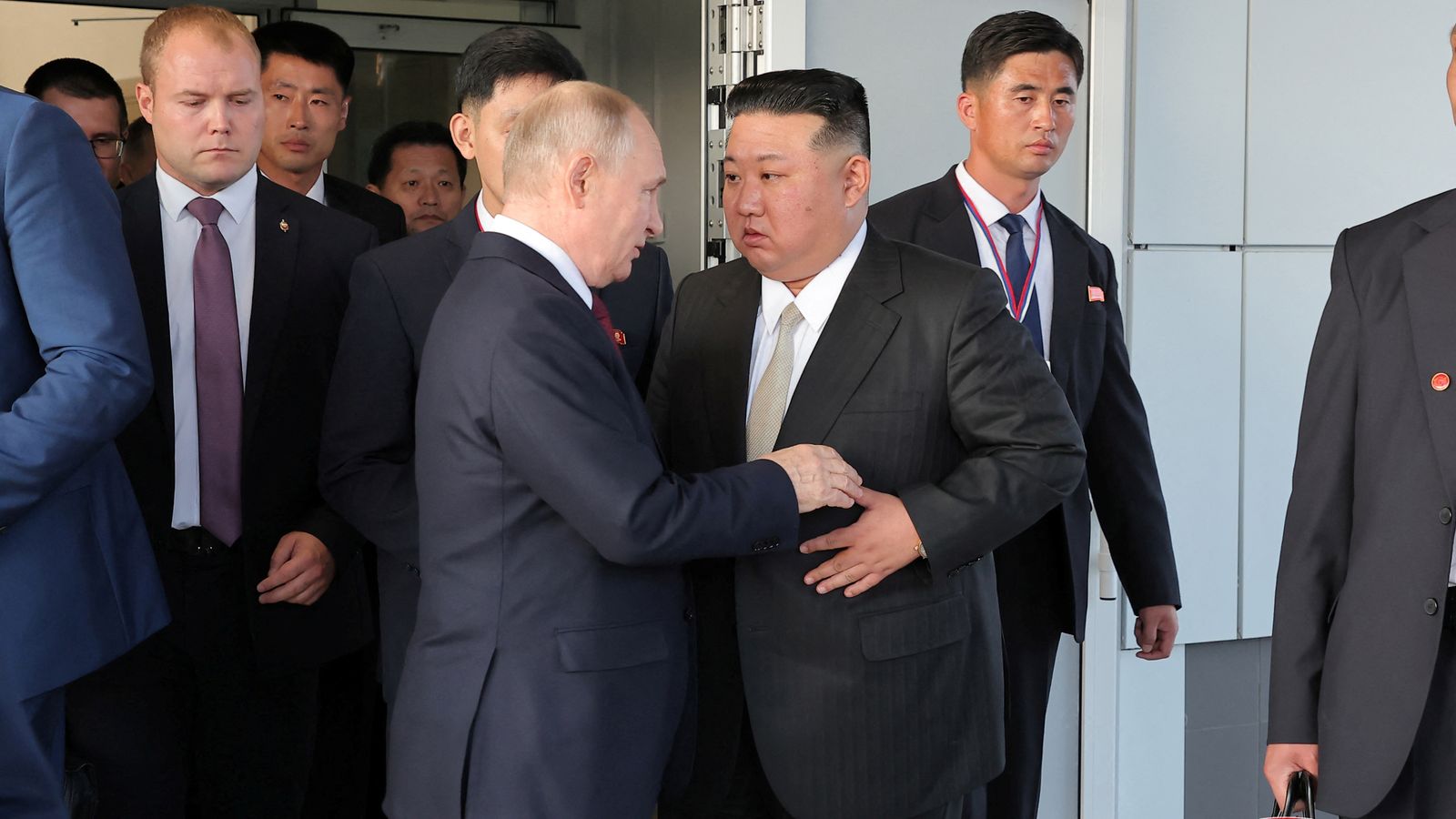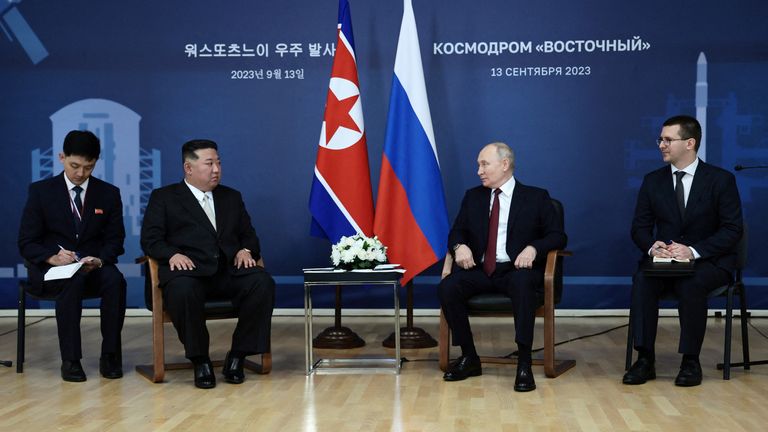Putin ‘accepts’ Kim’s invitation to visit North Korea, report claims


Vladimir Putin has accepted Kim Jong Un’s invitation to visit North Korea, according to the country’s state news agency.
While there was no immediate confirmation from Moscow, KCNA reports the Russian president will visit “at a convenient time”.
Kim is currently in Russia, where he has vowed to support the Kremlin’s “sacred war” against Ukraine, raising concerns the two nations could bolster their military capabilities.
Read more: Explosions reported in Crimea – Ukraine war latest
“At the end of the reception, Kim Jong Un courteously invited Putin to visit the DPRK at a convenient time,” KCNA reports, referring to the Democratic People’s Republic of Korea, the country’s formal name.
“Putin accepted the invitation with pleasure and reaffirmed his will to invariably carry forward the history and tradition of the Russia-DPRK friendship.”
The two leaders toasted their friendship on Wednesday with Russian wine after Mr Putin showed Kim around the country’s most modern space launch facility.
They also held talks alongside their defence ministers and called each other “comrades”.
The burgeoning friendship has concerned the West, with Washington accusing North Korea of providing weapons to Russia.
Advertisement
It is not clear if any deliveries have been made and the two states have denied those claims in any case – but they did promise to deepen defence cooperation.
Kim is due on Thursday to visit military and civilian aviation factories in the Russian city of Komsomolsk-on-Amur and to inspect Russia’s Pacific fleet in Vladivostok, Mr Putin said.
Day two of Kim’s visit to Russia and it is clear the red carpet has been well and truly rolled out.
It is rare indeed for Russia to open the door to its military sites.
But not only was North Korea’s leader shown a leading space base, Mr Putin said that today he would also visit an aviation factory and be given sight of a military programme and a demonstration of Russia’s pacific fleet in the port city of Vladivostok.
We’ve not been told if any deals were struck this week and it’s highly unlikely we’ll ever learn the specifics, but the symbolism and messaging has been stark: technological and military matters were absolutely the order of business.
It’s not just the West that will be watching nervously, Asian countries such as South Korea and Japan would be on the front line of any escalation launched by an empowered and confident North Korea.
Even China, an ally, doesn’t really want to see its already unreliable partner nuclear capable.
Russia would once have been wary too, and Mr Putin did hint yesterday that there would have to be limits to military cooperation.
But this visit has made abundantly clear almost any concern will now be set aside in pursuit of his central goal: victory in Ukraine.
What kind of weapons could North Korea provide?
Aidan Foster-Carter, a researcher in sociology and modern Korea at Leeds University, told Sky News North Korea can probably supply “good quality ammunitions” to Russia.
Please use Chrome browser for a more accessible video player
2:16
What help can Kim give Russia?
He said Mr Putin and Kim each had something the other wanted – but it was still unclear exactly what that was going to be.
Russia needs artillery shells, he said, and he is “betting” Kim needed money, food and cheap oil.
Asked how Kim could help Mr Putin, he said North Korea was a “highly-militarised state” and focused on producing armour.
“They probably can supply good quality ammunitions,” he said.
